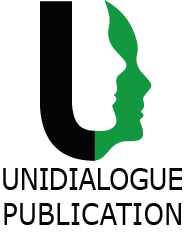Welcome to Unidialogue Publication: A Gateway to Intellectual Treasures
Unidialogue Publication, founded in August 2024 in Vienna, is dedicated to the publication of limited edition books in philosophy, mysticism, and more. Join our intellectual community and explore our carefully curated collection.
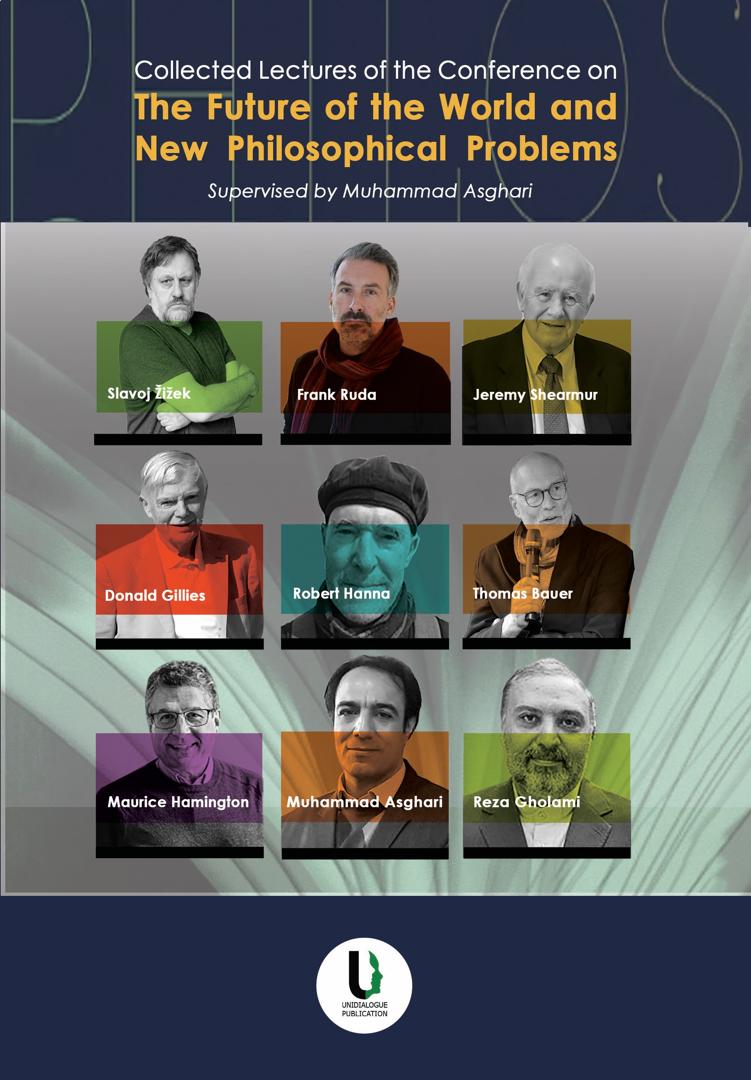
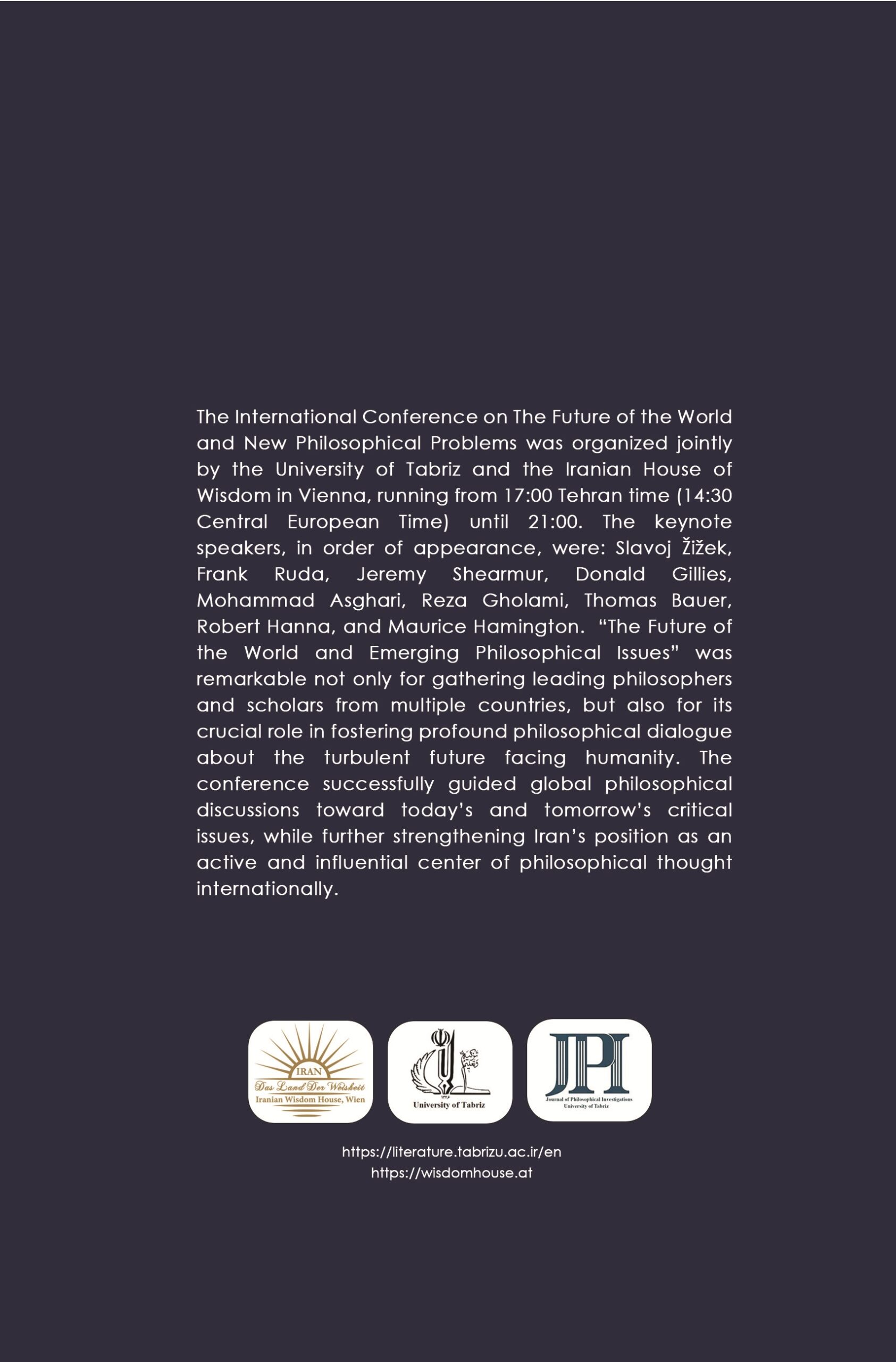
The Future of the World and New Philosophical Problems
Supervised by Dr. Muhammad Asghari
The book “Collected Lectures of the Conference on the Future of the World and New Philosophical Problems,” supervised by Dr. Muhammad Asghari (Professor at the University of Tabriz), was published in November 2025 by Unidialogue Publications (with the support of the Iranian Wisdom House in Vienna) in Austria. This book, printed with ISBN 978-3-9505638-9-4, contains the lectures presented at the international online conference “The Future of the World and Emerging Philosophical Issues,” held on November 20, 2025 (Aban 30, 1404) on the occasion of World Philosophy Day.
This book, published in 64 pages, is the result of the efforts of Muhammad Asghari as the scientific secretary of the conference and Reza Gholami as the executive secretary. The lectures were first broadcast online via Google Meet, and their videos were made available on the YouTube channel of the Iranian Wisdom House in Vienna. The conference articles will also be published next year in the Philosophical Investigations Quarterly of the University of Tabriz.

A Glimpse into the Glorious Persian Civilization: An Ancient Heritage, a Lasting Identity, and a Vision for the Future
The book “Die glanzvolle persische Zivilisation: Ein uraltes Erbe, eine beständige Identität und ein Ausblick in die Zukunft” is a scholarly and well-documented work in German that presents a coherent and analytical narrative of Iran’s long history and its civilizational role from ancient times to the modern era. Published in November 2025 in Vienna, the book appears in 72 pages, in a medium/octavo format, and offers a strategic introduction to Iran’s political, cultural, and scientific history within the broader context of its interactions with the surrounding world.
Drawing on reliable sources and sound methodology, the author traces the formation of Iranian identity, the decisive contribution of Iranians to the flourishing of Islamic sciences and arts, and the enduring cultural influence of Iran across a vast region stretching from Central Asia to the Mediterranean. Aimed at fostering intercultural dialogue, this work provides European readers with an image of Iran that goes far beyond media clichés and reveals how the synthesis of rationality, spirituality, and cultural creativity has made Iran one of the key pillars of world history.
More than a reassessment of a glorious past, the book underscores the necessity of reviving rationality and ethics and outlines a forward-looking vision for the future of the Iranian-Islamic civilization. Die glanzvolle persische Zivilisation serves as a concise, authoritative, and inspiring resource for researchers, academics, and all those interested in Iranian studies.
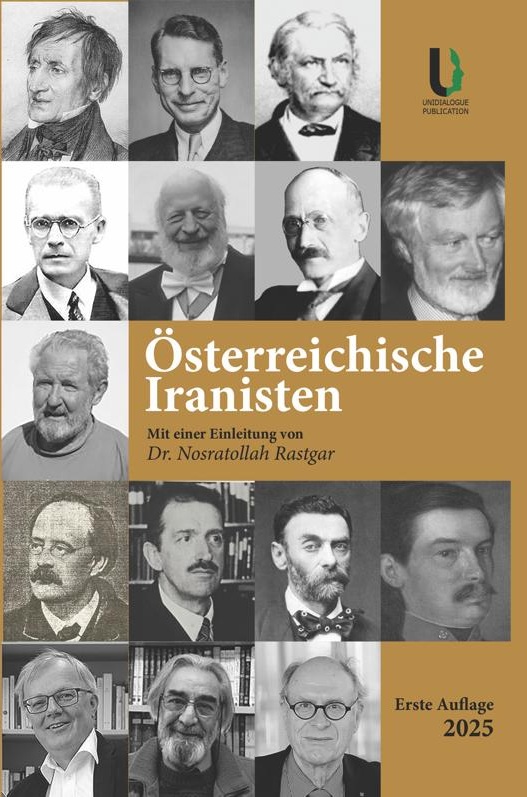
Austrian Iranian Studies Scholars
Overview
The book Austrian Iranian Studies Scholars explores Austria’s contributions to Iranian studies across history, culture, language, and science. Published in September 2025 by Unidialogue Publication in Vienna—with the support of the Iranian House of Wisdom and the Hafiz-Hammer-Purgstall Association—this first edition (ISBN: 978-3-9505638-5-6) features an introduction by Dr. Nosratollah Rastgar and a foreword by Dr. Reza Gholami, signed in October 2025.
Content Structure
The book includes an introduction, an overview of Iranian studies in Austria, and a series of profiles on leading Austrian scholars in the field:
Joseph von Hammer-Purgstall, Theodor Kotschy, Aloys Sprenger, Jakob Eduard Polak, Albert Gasteiger, Robert Pollak, Uto von Melzer, Ladislaus von Rabcewicz, Alfons Gabriel, Karl Rechinger, Robert Kostka, Karl Gratzl, Bert Fragner, Nosratollah Rastgar, Rüdiger Lohlker.
Introduction Highlights
The introduction emphasizes Iran’s enduring civilizational role through figures such as Zarathustra, Avicenna, and Ferdowsi, as well as contributions to science and the arts. It also reflects Austria’s longstanding academic engagement with Iran. In his foreword, Dr. Gholami highlights Austria’s scholarly achievements and acknowledges the support of the Iranian House of Wisdom and Unidialogue Publication.
Significance
The importance of Austrian Iranian Studies Scholars lies in its documentation of a centuries-long intellectual tradition. For several centuries, Austrian scholars have devoted themselves to studying the grandeur of Iranian civilization and culture. Their work reflects not only a scholarly pursuit but also a heartfelt connection—one might say that the hearts of these scholars have long beat in rhythm with Iran. By preserving this legacy, the book highlights Austria’s enduring role as a bridge between Europe and Iran, and it offers future generations a foundation for continued dialogue and discovery.
Audience and Impact
The book is aimed at academics, historians, students, and cultural institutions. It provides a strong foundation for future research in Iranian studies and is expected to strengthen scholarly engagement at institutions such as the University of Vienna while preserving the shared intellectual heritage of Austria and Iran.
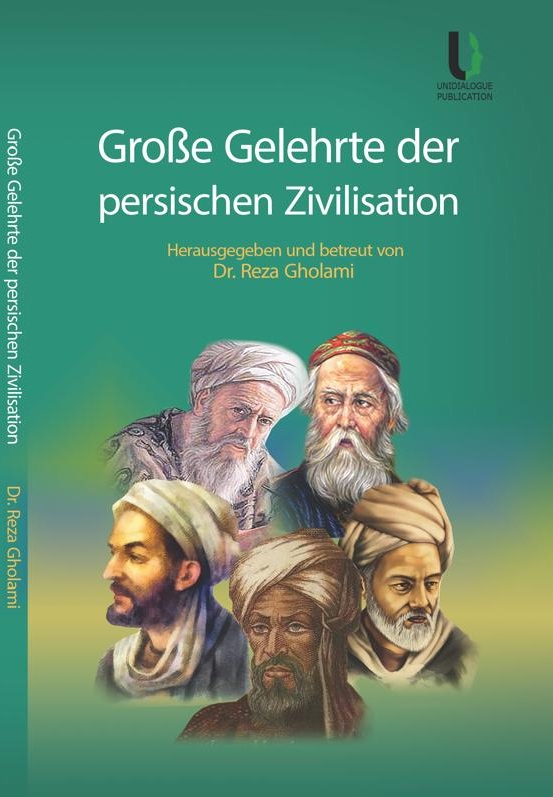
Great Scholars of Persian Civilization
Authored and edited by Dr. Reza Gholami
The book Great Scholars of Persian Civilization, authored and edited by Dr. Reza Gholami, was published by Unidialogue in September 2025 in Vienna, Austria, with support from the Iranian Wisdom House in Vienna. Printed by TELEprint Digitaldruck KG, it carries the ISBN 978-3-9505638-6-3 and is available via unidialogue.publication@gmail.com. All rights are reserved by Unidialogue under copyright © 2025.
Book Overview
This book examines the lives, works, and contributions of prominent Persian scholars from the 8th to early 16th centuries, known as the Golden Age of Persian Science. It highlights their advancements in astronomy, mathematics, medicine, philosophy, and other fields, showcasing their global influence.
Scope
The book covers 800 years, from the 8th-century scientific movement to the early Safavid era, a period of significant intellectual achievement. Later Persian scholars are noted for future study.
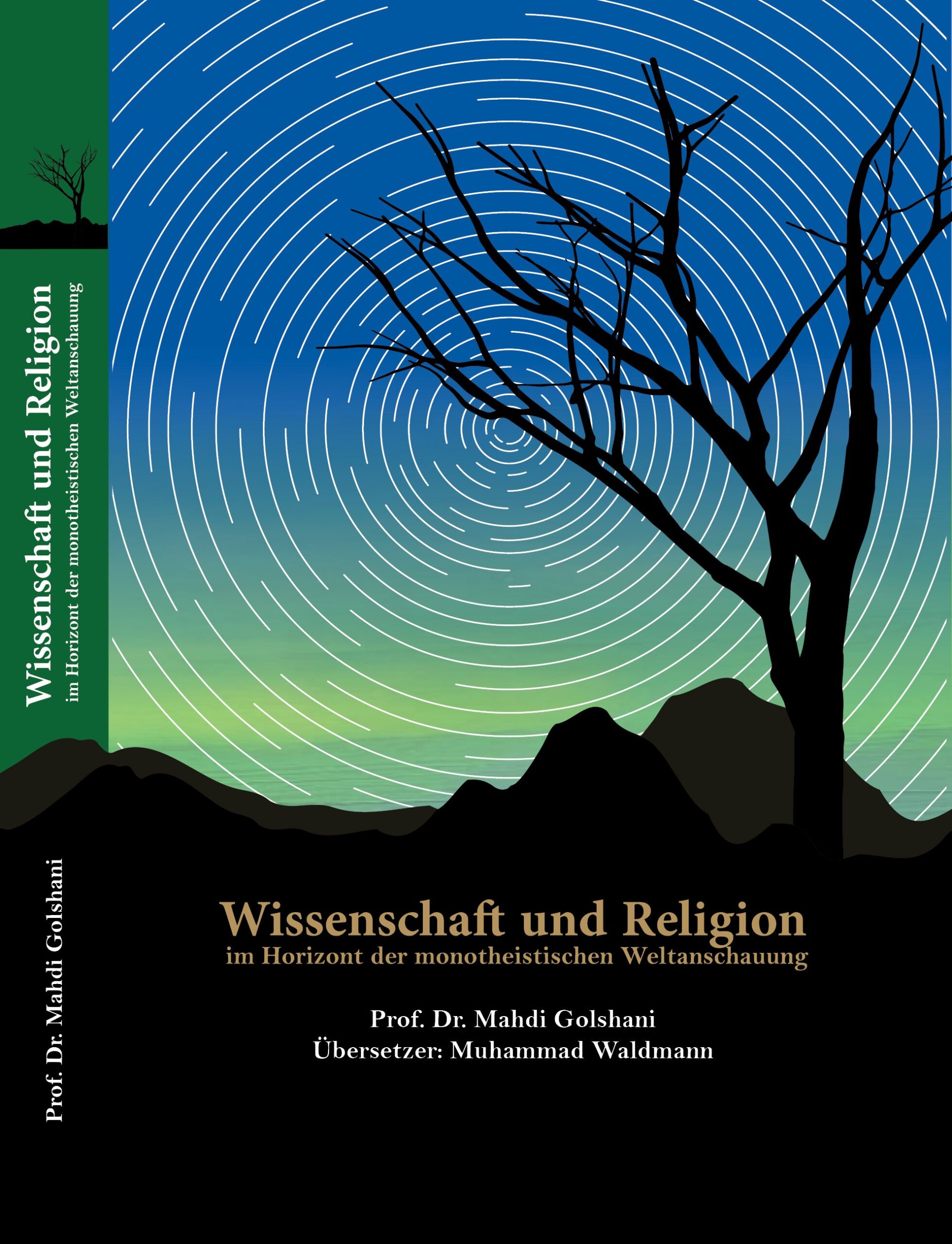
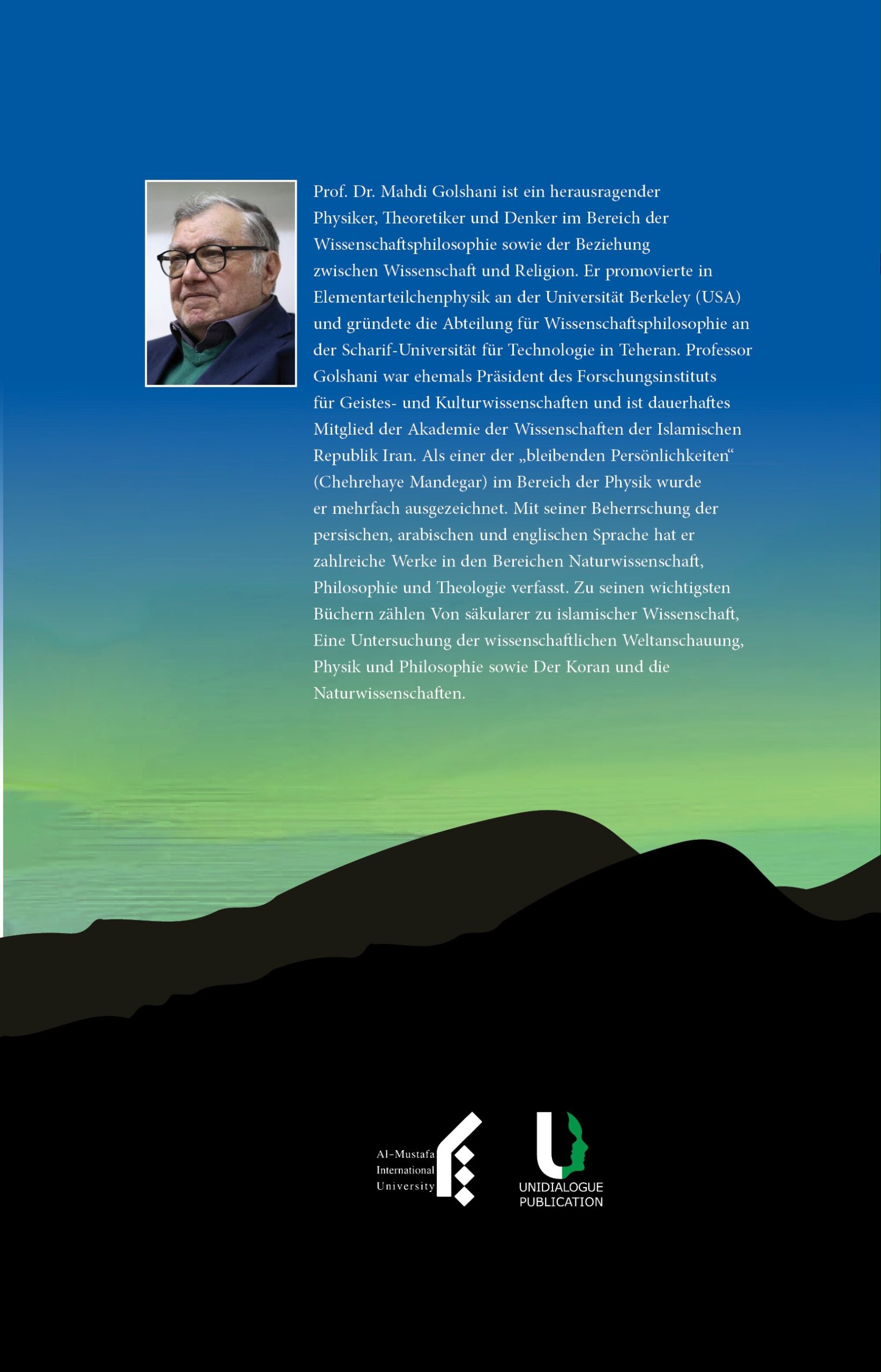
Science and Religion in the Horizon of a Monotheistic Worldview
by Professor Dr. Mehdi Golshani
translated by Professor Mohammad Waldman
The book “Science and Religion in the Horizon of a Monotheistic Worldview” by Professor Dr. Mehdi Golshani, translated by Professor Mohammad Waldman, has been published in German by Unidialogue Publishers in Vienna, Austria, spanning 380 pages. Supported by the Cultural Attaché of Iran and introduced by Dr. Reza Gholami, this work offers a profound exploration of the relationship between science and religion within Islamic civilization and the modern world. Golshani, a retired professor from Sharif University of Technology and a pioneer in science and religion in Iran, addresses topics such as cosmology, metaphysics, and ethics in science across 16 chapters, drawing on Islamic sources and Western perspectives with an accessible style, answering fundamental questions about the harmony of science and religion. Previously published in English, it serves as a valuable resource for students of theology, philosophy of science, and interdisciplinary enthusiasts.
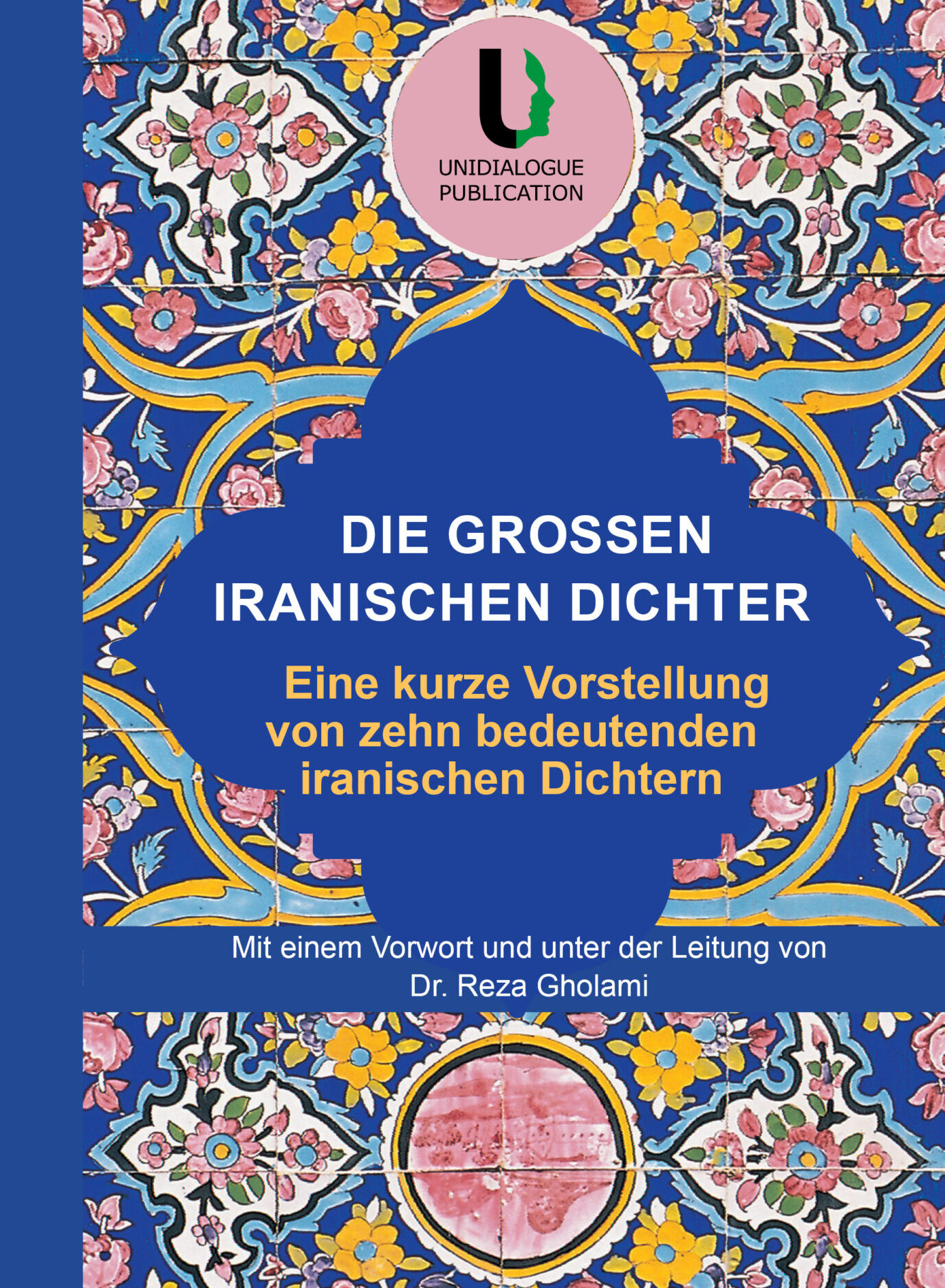
THE GREAT IRANIAN POETS A Brief Introduction to Ten Prominent Iranian Poets
With a Foreword and under the Supervision of Dr. Reza Gholami
The book The Great Iranian Poets (A Brief Introduction to Ten Prominent Iranian Poets) has been published in Vienna through the collaboration of the Cultural Counsellor’s Office of the Islamic Republic of Iran in Austria and the efforts of UNIDIALOGUE Publishing House. This 129-page book, printed in medium octavo format, has been authored and translated into German.
Iranian poets are not only creators of linguistic beauty but also pillars of the cultural and spiritual identity of Persian civilization. Their works serve as mirrors reflecting Iran’s history, ethics, mysticism, and wisdom; understanding Iran would be incomplete without familiarity with these distinguished figures.
With precise, cohesive, and fluent prose, this book offers a concise description of the life and literary contributions of ten of Iran’s most renowned poets: Rudaki, Ferdowsi, Sana’i, Attar, Rumi, Saadi, Nezami, Khayyam, Hafez, and Parvin E’tesami. The book is also adorned with portraits of these poets and images of some of their tombs.
The Great Iranian Poets has been compiled under the supervision of Dr. Reza Gholami, accompanied by a comprehensive introduction, with the aim of presenting the invaluable treasures of Persian literature to German-speaking audiences. The publication of this work is considered a significant step towards introducing the rich culture and literature of Iran to the world
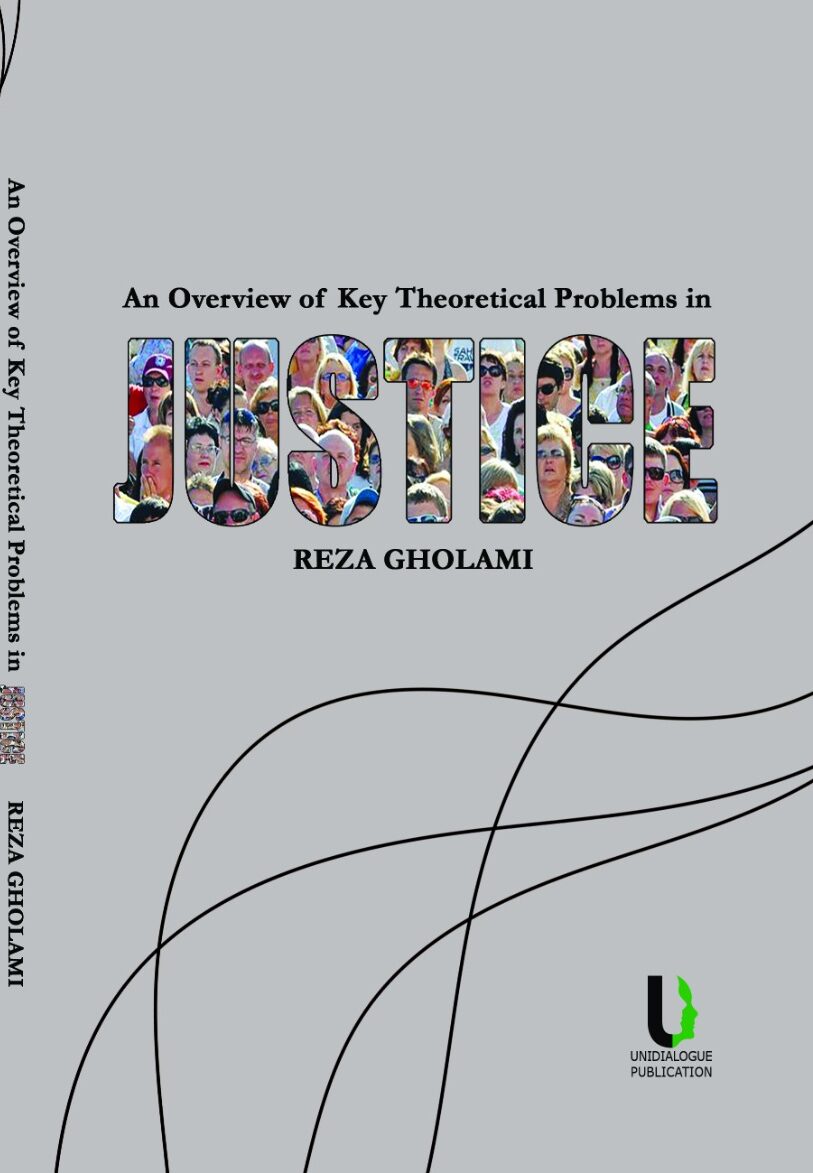
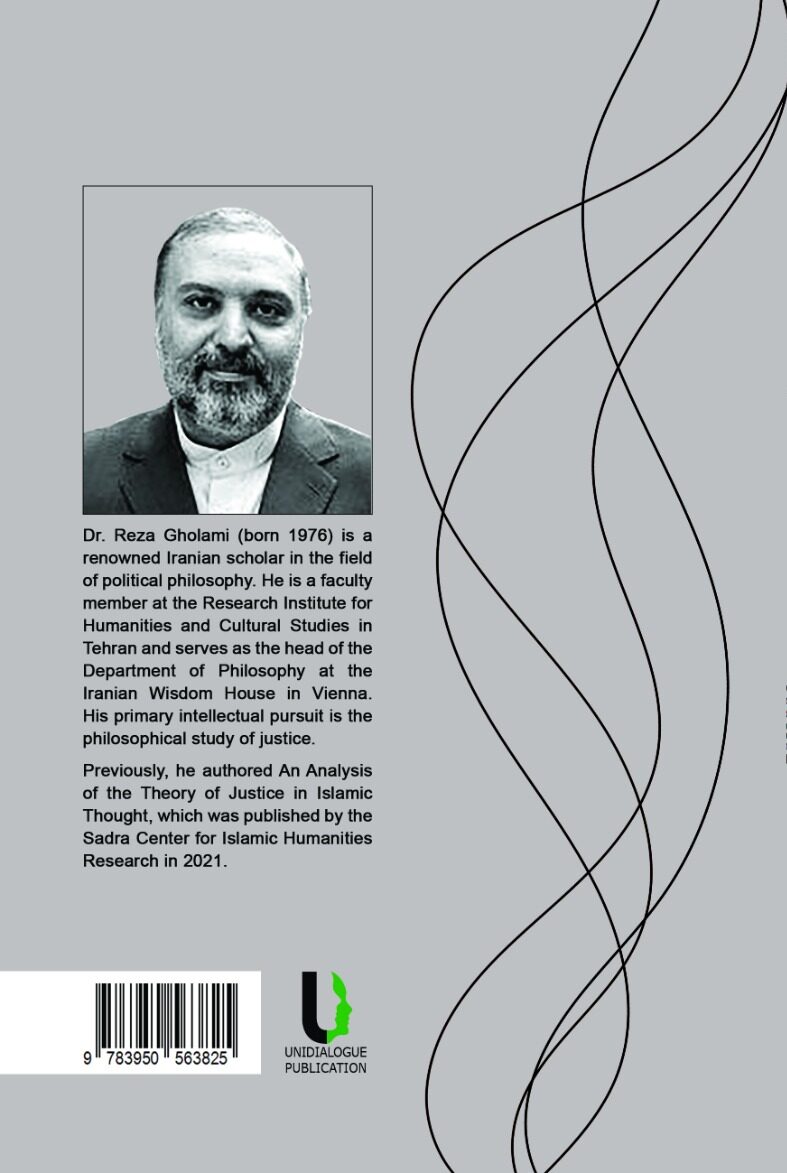
An Overview of Key Theoretical Problems in Justice
In An Overview of Key Theoretical Problems in Justice, Dr. Reza Gholami embarks on an intellectual journey to explore one of the most fundamental yet complex concepts in human civilization: justice. The book delves into the philosophical and practical challenges of defining and implementing justice, offering a comprehensive analysis that spans historical theories, ethical dilemmas, and contemporary global issues.
At the heart of the book lies a fundamental question: What is justice, and how should it be understood? The author examines whether justice is an absolute, universal principle or a relative concept shaped by historical and cultural contexts. To answer this, he critically engages with major philosophical perspectives, including John Rawls’ theory of justice as fairness, which emphasizes equality and moral reasoning through the veil of ignorance; utilitarian views by Bentham and Mill, which focus on maximizing collective well-being; Nozick’s libertarian justice, which prioritizes individual freedoms and property rights; and Marxist interpretations, which view justice through the lens of class struggle and economic redistribution. By comparing these perspectives, the book provides a nuanced understanding of how justice has been theorized across different intellectual traditions.
Beyond theory, the book explores the relationship between justice and social values. It raises thought-provoking questions about the balance between justice and freedom, equality and meritocracy, and the role of religion in shaping justice. Should justice always prioritize equality, or should it reward talent and effort? Can justice exist independently of morality, or does it require a moral foundation? These questions form the basis of broader debates on justice as a guiding principle for governance and society.
The discussion then expands to justice in the global context, where the author examines contemporary challenges such as economic inequality, environmental justice, and human rights. As globalization reshapes political and economic landscapes, the book considers whether justice can be applied universally or if it must be adapted to different cultural and political realities. Issues such as wealth distribution, migration, and climate change are explored to highlight the growing complexities of achieving justice on a global scale.
In addition to these broad discussions, the book also provides a detailed examination of justice in specialized fields, including education, healthcare, environmental policy, and technological advancements. Dr. Gholami argues that justice is not a one-size-fits-all concept; rather, it must be tailored to different domains to ensure fairness and ethical governance. Access to quality education, equal healthcare opportunities, sustainability, and ethical scientific progress all require distinct justice frameworks that align with their respective challenges and societal needs.
The final section of the book shifts focus from theory to practice, exploring the challenges of implementing justice in real-world scenarios. The author discusses policy frameworks, justice evaluation indicators, and historical examples of societies that have attempted to establish just systems. …
Printing: TELEprint Digitaldruck KG
Publisher: UNIDIALOGUE, March 2025, Vienna
Email: Unidialogue.publication@gmail.com
Author: Dr. Reza Gholami
ISBN: 978-3-9505638-2-5
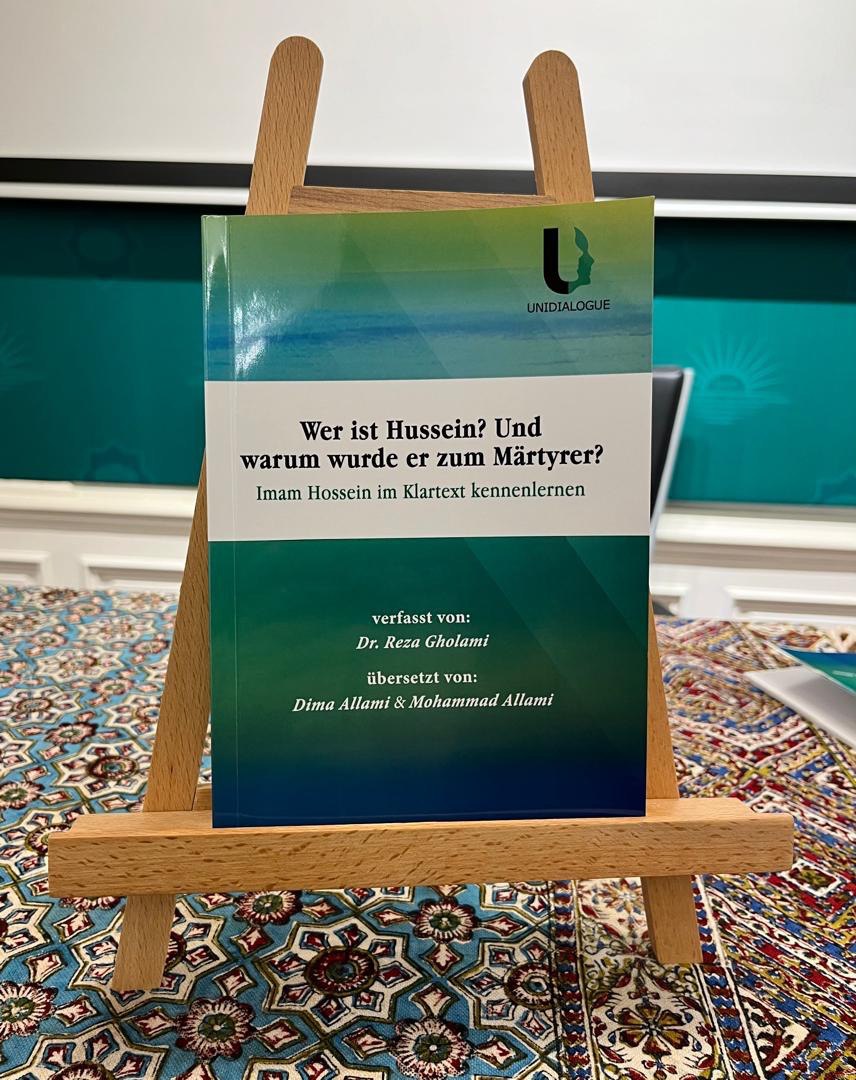
Imam Husain book published
Dive into a wealth of intellectual gems at Unidialogue Publication, where our curated selection of philosophical and cultural books beckons. Engage with our enriching collection and ignite your curiosity.
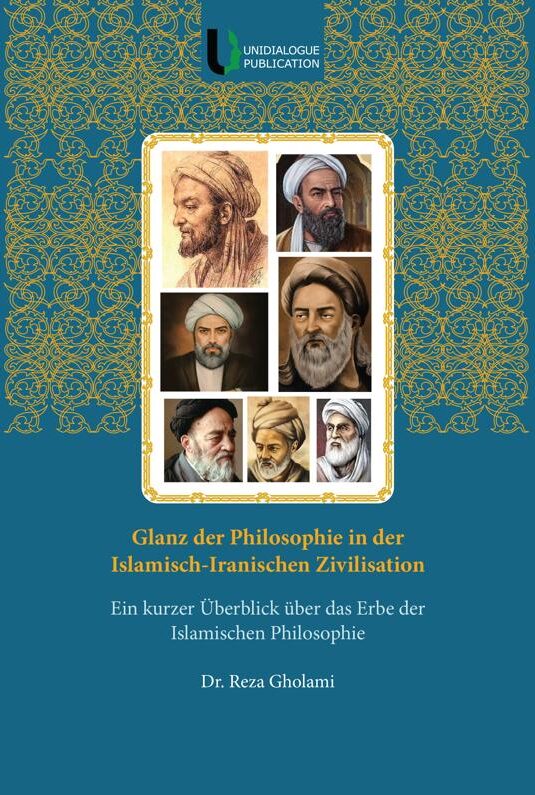
The Brilliance of Philosophy in Iranian- Islamic Civilization Published
Dive into a wealth of intellectual gems at Unidialogue Publication, where our curated selection of philosophical and cultural books beckons. Engage with our enriching collection and ignite your curiosity.The booklet The Brilliance of Philosophy in Islamic-Iranian Civilization has been published in Vienna.
This booklet was prepared by the House of Iranian Wisdom in Vienna on the occasion of the first Islamic philosophy training course at the Faculty of Philosophy, University of Vienna.
It provides a brief overview of the legacy of Islamic philosophy, with a foreword by Dr. Reza Gholami, a professor at the Institute for Humanities and Cultural Studies.
The booklet explores the history and impact of Iranian philosophy from the early Islamic civilization to the contemporary era, analyzing its role in the development of human thought.
It highlights the influence of eight great and renowned Iranian philosophers—Al-Farabi, Avicenna (Ibn Sina), Suhrawardi, Nasir al-Din al-Tusi, Mir Damad, Mulla Sadra, and Allameh Tabatabai—on Islamic philosophy and the intellectual tradition of the Islamic world. Additionally, it examines the connections between Iranian philosophy and mystical and ethical issues, briefly analyzing how this rich heritage has influenced modern thought.
The booklet also delves into the mutual interactions between Iranian philosophy and Greek and Islamic philosophical traditions, showcasing Iran’s role as a bridge between various cultures and civilizations. It serves as a valuable resource for researchers and enthusiasts of philosophy and Iranian history, particularly non-Iranian students interested in philosophy.
This 80-page booklet has been published by Uni-Dialogue Publications in Austria.
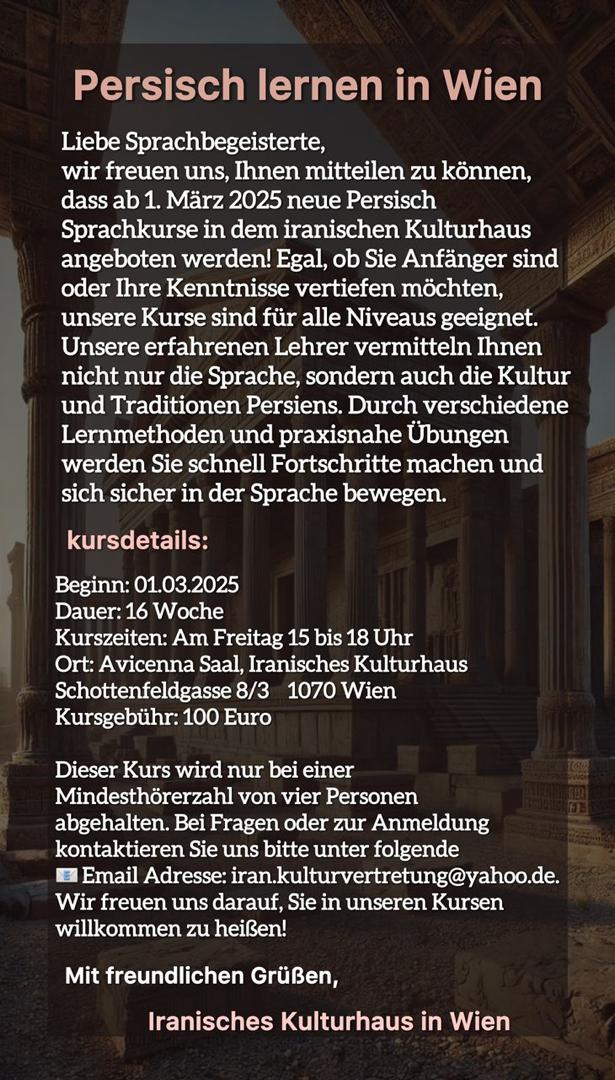
Learn Persian in Vienna
Dear language enthusiasts,
We are pleased to inform you that from March 1, 2025, new Persian language courses will be offered at the Iranian Cultural House! Whether you are a beginner or wish to deepen your knowledge, our courses are suitable for all levels. Our experienced teachers will not only teach you the language but also the culture and traditions of Persia. Through various teaching methods and practical exercises, you will make rapid progress and feel confident in the language.
*Course Details:*
– *Start Date:* March 1, 2025
– *Duration:* 16 weeks
– *Course Times:* Fridays from 3 PM to 6 PM
– *Location:* Avicenna Hall, Iranian Cultural House, Schottenfeldgasse 8/3, 1070 Vienna
– *Course Fee:* 100 Euros
This course will only be held if there is a minimum enrollment of four participants. For questions or to register, please contact us at the following email address: iran.kulturvertretung@yahoo.de
We look forward to welcoming you to our courses!
Best regards,
Iranian Cultural House in Vienna
Embark on an Intellectual Journey
Unidialogue welcomes critiques of the books it publishes, viewing them as a golden opportunity for the advancement of knowledge and science.
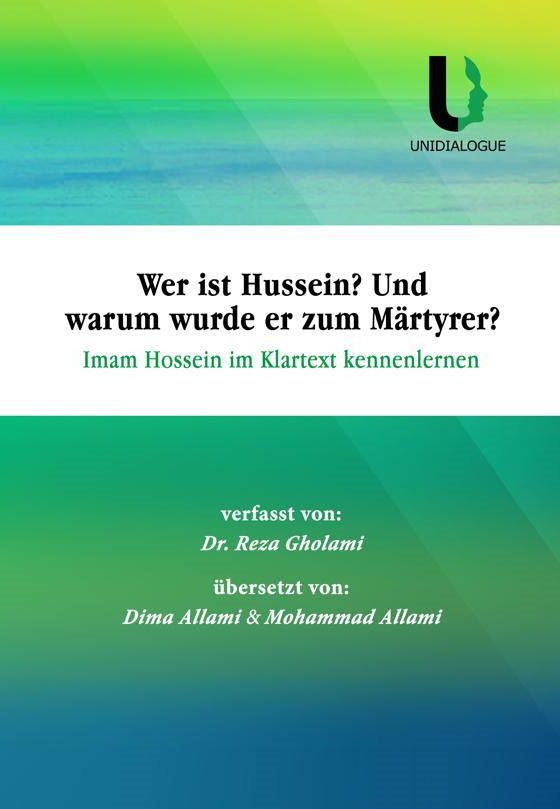
Who is Hussein and Why Was He Martyred?

Science and Religion

Analysis of Theoretical Problems of Justice
The Future Publications
UniDialogue Publishing plans its publishing program for the next two years based on its own ideas as well as books proposed for publication. Being informed about UniDialogue’s future plans can be highly beneficial for its audience, as well as for translators and other publishers.

Science and Religion
This book is authored by Professor Mahdi Golshani, a renowned Iranian physicist born in 1939, who is also recognized as the father of the academic field of science and religion in Iran.

Analysis of Theoretical Problems of Justice
Analysis of Theoretical Problems of Justice is the title of Dr. Reza Gholami’s new book, which will be published by this publisher within the next five months in 250 pages. From a scientific classification perspective, this book falls under the category of political philosophy.
